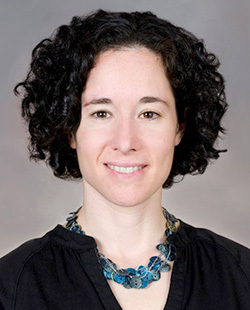By Jenny Wilson, MD
This conference is unique in bringing a variety of subspecialists together in an environment where participants forge global connections and break down silos of clinical care and investigation. The social activities allowed participants to get to know each other a little better, strengthening current and paving the way towards future collaborations. Some themes/hot topics included addressing challenging vascular malformations and the role of medical management, endovascular therapy and focal cerebral arteriopathy, insights into moyamoya disease, rehab and recovery, and international perspectives. There is too much to cover here, but we wanted to highlight a few talks to capture the energy of this meeting.
The congress started out with a bang: Dr. Darren Orbach unveiled his revolutionary fetal treatment of vein of Galen malformation, turning a fatal form of this disorder into a survivable one. After hearing about Dr. Orbach’s journey from conception, collaboration between subspecialists, procedural modeling, to the early successes, we anticipate this to be a game-changer. Study enrollment is ongoing.
On the topic of moyamoya disease, a disorder of progressive brain vessel narrowing, Dr. Dianna Milewicz presented her discovery of ACTA2 as a smooth muscle disorder which can result in a moyamoya-like syndrome. Using a mouse model of this disease, she learned that the glycolytic pathway is affected and that by giving the mice nicotinamide riboside, mitochondrial function is restored and the mice no longer develop the abnormal vessels. As so little is known about moyamoya disease, the potential for an over-the-counter supplement treatment is BIG. A clinical trial of nicotinamide riboside in ACTA2 is planned.
Dr. Manoëlle Kossorotof discussed differentiating moyamoya from focal cerebral arteriopathy and along with Dr. Edward Smith, provided great pearls on moyamoya management. Dr. Ji Hoon Phi found an unexpectedly high rate (up to 30%) of non-renal hypertension in moyamoya disease. Dr. Peter Sporns presented his prospective registry data demonstrating safety and efficacy of endovascular therapy on pediatric large vessel occlusion. Even those later diagnosed with focal cerebral arteriopathy seemed to benefit, a point of contention.
The genetics of vascular malformations are being elucidated with key players. There is enthusiasm (but little data) about targeted medical treatments. We heard from neuro-interventionalists and neurosurgeons on the approaches for challenging vascular malformations.
 In the rehabilitation and recovery space, we heard about the concept of delayed cognitive decline occurring after stroke in children from Dr. Elizabeth Mayne, who has developed a mouse model to better understand this process. Dr. Iona Novak gave a brilliant talk on the efficacy of therapies that utilize reinforcement of repeated, task-based training for children with cerebral palsy. Dr. Trish Domi, later in the congress, gave an example of this principle with her Bootle Blast a Home-Based Gaming Rehabilitation Program. Finally, we were blown away by the advancements in the field when Alex Silva demonstrated an invasive neuro-prostheses that utilizes machine learning of intracranial EEG data to literally generate speech from thoughts.
In the rehabilitation and recovery space, we heard about the concept of delayed cognitive decline occurring after stroke in children from Dr. Elizabeth Mayne, who has developed a mouse model to better understand this process. Dr. Iona Novak gave a brilliant talk on the efficacy of therapies that utilize reinforcement of repeated, task-based training for children with cerebral palsy. Dr. Trish Domi, later in the congress, gave an example of this principle with her Bootle Blast a Home-Based Gaming Rehabilitation Program. Finally, we were blown away by the advancements in the field when Alex Silva demonstrated an invasive neuro-prostheses that utilizes machine learning of intracranial EEG data to literally generate speech from thoughts.
There was much more content which will be available online. Many thanks to the IPSO leadership, the congress chairs and scientific committee, and everyone else who put in all the hard work to make this conference such a success. Stay tuned for information on the next in-person congress in 2026, which is not to be missed!

Jenny Wilson, MD
Oregon Health & Science University
